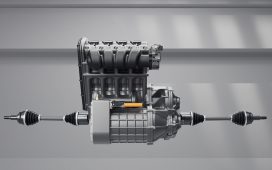Roughly one in six new cars registered last year was battery-electric, in line with the year before, the Society of Motor Manufacturers and Traders said on Friday. The trade group — whose members include Jaguar Land Rover, Nissan Motor Co. and BMW AG — is calling for the government to halve the value-added tax on EVs to 10% for a limited period.
Reducing VAT for three years would save consumers about £7.7-billion and put 270,000 more EVs on the road, the SMMT estimates. It also would boost car manufacturers’ ability to meet the UK’s new mandate, which calls for 22% of each manufacturer’s sales this year to be zero-emission. The share requirement ratchets up annually to 80% in 2030.
“A mandate can compel supply. It can’t compel demand,” SMMT CEO Mike Hawes told reporters. “For demand to meet those expectations, we do need to look at incentives” for the private consumer.
While the UK is the second-largest market for EVs in Europe, their market share is higher in countries including Germany and France. The UK is the only major country in Europe that no longer offers EV purchase incentives, after the government ended a plug-in car grant in June 2022.
The UK finalised its zero-emission vehicle mandate days after Prime Minister Rishi Sunak said in September that his government would ease the transition to EVs by allowing Britons to still buy petrol and diesel cars until 2035.
“I don’t think that the overarching message was particularly helpful,” Hawes said on Thursday. “The messaging is different from what the regulation is that affects the manufacturers.”
Overall new-car registrations jumped about 18% last year to 1.9 million, which was still roughly 18% below pre-pandemic levels. Growth was driven entirely by businesses and fleet buyers. The SMMT has forecast sales will rise about 4% this year to 1.97 million.
Businesses and fleet buyers also dominate the battery-electric segment, in large part due to compelling tax incentives. By contrast, only one in 11 private consumers are buying EVs.











